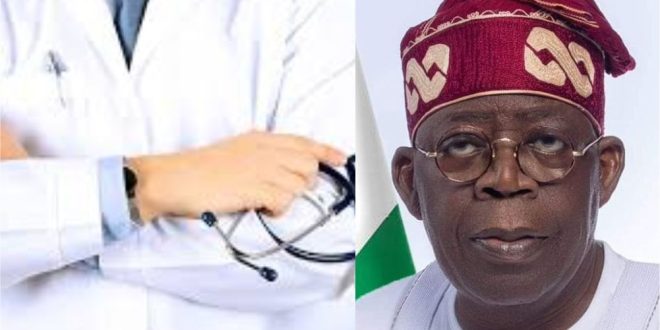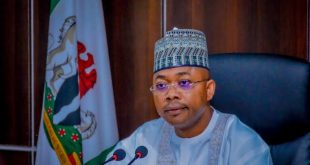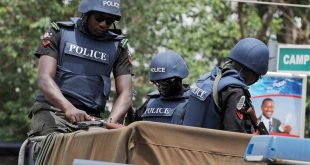Chief Medical Directors (CMDs) of University Teaching Hospitals have called on the Bola Tinubu-led government to urgently increase the salaries of healthcare workers and improve working conditions to stop the mass exodus of medical professionals seeking better opportunities abroad.
The CMDs stressed that addressing the ongoing “Japa syndrome” (the migration of Nigerian professionals to other countries) requires a comprehensive approach to not only improve healthcare services but also make them more accessible to the general population.
Speaking at the 2025 budget defence before the House of Representatives Committee on Health Institutions, the CMDs of Lagos University Teaching Hospital (LUTH), Prof. Wasiu Adeyemo, and University College Hospital (UCH), Ibadan, Prof. Jesse Abiodun, among others, raised alarms that the nation’s tertiary health institutions are on the brink of collapse due to the constant migration of doctors, nurses, and other healthcare workers.
Prof. Adeyemo highlighted the situation in Lagos, noting the challenges the hospital faces in retaining staff due to low wages compared to better-paying state governments and private hospitals.
“The government is making efforts to improve the infrastructure of our hospitals; they are building new structures, sponsoring new programs, and renovating facilities,” Adeyemo said.
“Yet, many healthcare workers are leaving, and one of the main reasons is the poor economy. We’ve advocated for more personnel, but they aren’t coming because the pay is not attractive enough.”
He added that in Lagos, the federal government faces competition from the Lagos State government, which offers higher salaries, and an influx of high-paying private hospitals that are further draining the pool of healthcare professionals.
“The government needs to increase salaries for people to stay. That is what we need to do, in addition to other welfare packages,” he stressed.
Dr. Pokup Bupwatda, CMD of Jos University Teaching Hospital (JUTH), Plateau State, echoed Adeyemo’s calls for salary increases but emphasised the need for a conducive working environment as well.
“Satisfaction isn’t solely financial. Having the right equipment and the opportunity to use professional skills also play a crucial role,” Bupwatda said.
He pointed out that critical equipment, such as the CT scan in JUTH, is outdated and cannot be replaced due to budget constraints.
“We need modern equipment to offer quality care. “The government made provision for us to buy it, but we couldn’t because of inflation, which increased the cost beyond the budget.”
Despite these challenges, Bupwatda expressed hope for improvements under the “Renewed Hope” agenda of President Bola Ahmed Tinubu.
“I believe with the ‘Renewal Hope’ of Mr President, if the economy improves, all these issues will be addressed. We’ve seen an increase in budgetary provisions, and I can assure you that if more attention is given to the health sector, things will improve. This will go a long way to minimise the Japa syndrome.”
He also mentioned that efforts are underway to fill staffing gaps through recruitment initiatives.
As Nigeria continues to grapple with a shortage of skilled healthcare workers, the CMDs are calling for urgent action to improve the working conditions and compensation of medical professionals in the country.
They believe that addressing these issues is critical to curbing the growing trend of medical brain drain and ensuring a robust healthcare system for all Nigerians.
 National Telescope national telescope newspaper
National Telescope national telescope newspaper



